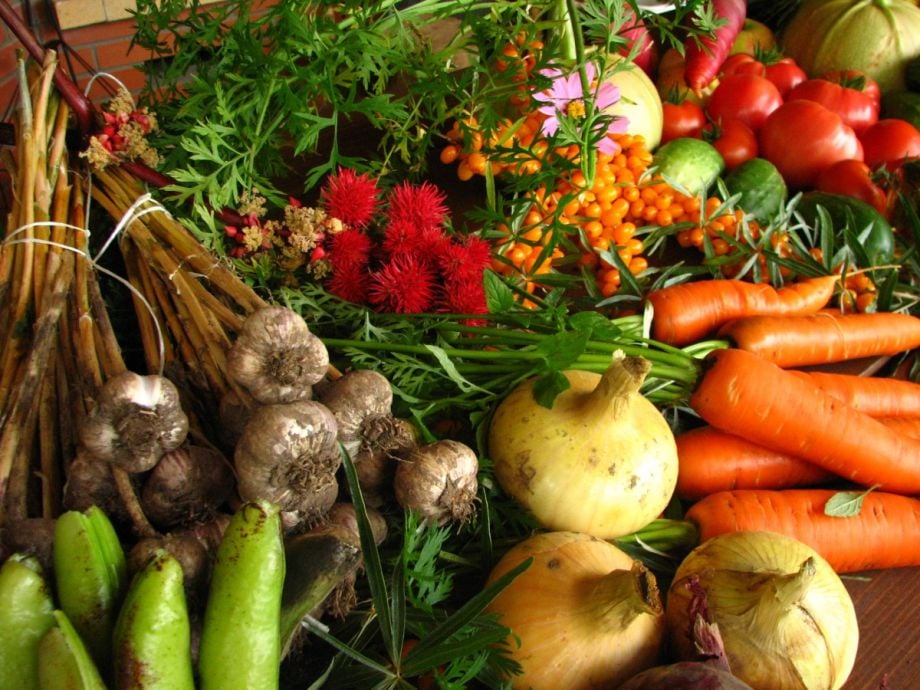Mike Feinman owns and operates E&L Supermercado in Southwest Detroit. The grocery store has been in his family for three generations, and has supplied the surrounding community with a variety of Hispanic food offerings and farmers-market-fresh produce since the 1940s.
Despite a much-debated reputation for food deserts (some point to not a lack of stores, but rather a lack of transportation available to help people access existing stores), Detroit has several indie grocers like E&L that have spent several decades feeding residents. Some in the city have been working to highlight those healthy eating establishments.
“As an independent grocery store, we wouldn’t have made it for the last 70 years if we didn’t know what we were doing and if we weren’t providing our customers with what they want,” says Feinman. “We bring in fresh produce and meats on a daily basis. People come in two to four times a week wanting fresh items and produce that hasn’t been sitting on the shelves like big chain stores.”
E&L sources much of its produce from local Michigan farmers and frequently buys from the city’s Eastern Market — a 4.5-acre farmers market in the heart of the city that began in the 1800s and boasts over 150 local vendors selling fresh produce.
He moved E&L to a newer, bigger building about 16 years ago, but Feinman now has his sights set on updating the store. He’s one of 18 independent grocery store owners taking advantage of the Detroit Green Grocer Project Facade Improvement Program (GGP), a project of the Detroit Economic Growth Corporation, which provides up to $50,000 in reimbursements to existing grocery store owners and tenants to make exterior improvements to their markets. Feinman hopes to use GGP funding to expand, purchase a new outdoor marquee sign and create indoor seating for the store’s popular made-to-order taqueria.
Created in 2010, the Detroit Green Grocer Project plans to contribute over $500,000 of its $5.3 million total budget to 16 independent, full-service grocery stores for facade improvements over the next year. Grants, ranging from $5,000 to $50,000, can be used for everything from roof repairs to window displays and exterior lighting.
According to Mimi Pledl, program manager of the Green Grocer Project, owners of older, smaller stores tend to make improvements to interiors, not exteriors, which can put them at a disadvantage in getting noticed in communities. Pledl notes that big grocery store chains spend millions on creating appealing storefronts.
“The exteriors are a significant part of providing visibility to the public that there are available, fresh food items right in their neighborhood,” says Pledl. “[GGP] funds are a significant part of changing the perception and negative press that the grocery sector here in Detroit has received.”
The GGP is working to lift up indie grocers in other ways. In November, Pledl organized a “grocery crawl,” inviting community members to visit several Detroit supermarkets by bus to highlight the food options in the city — and support local entrepreneurship.
Not just for show-and-tell, the tour helped local leaders make valuable connections. Charles Walker is a program manager with the Fair Food Network’s Double Up Food Bucks program. On the crawl, he was able to speak with store owners about participating in his organization’s program, which provides incentives — up to $20 per day — to SNAP Bridge Card holders to purchase produce with coupon benefits when they buy from local farmers markets and grocery stores.
Walker suggests that the tour become more than a one-time event, and instead, be “repurposed to attract residents to discover new grocery store options” and “drive additional business for store owners.”
As the Detroit News recently reported, there are around 77 full-service grocery stores in Detroit — 65 of which are independently owned. The city welcomed Whole Foods to its Midtown neighborhood in 2013.
James Garrison is a manager at Honey Bee Market, which has been in business since 1956 and was one of four stops on GGP’s grocery store tour.
“It is a bit of an insulting perception that Detroit is a food desert and doesn’t have any good grocery options,” says Garrison. “The negative perception is really about being ignored. People aren’t celebrating what we have here. Since our expansion in 2000, we’ve filled our shelves with more local, organic items by listening to the needs of our customers. We have a mix of long-time shoppers and new customers that come in two to four times a week.”
Pledl hopes to extend the GGP’s support beyond full-service grocery stores and sees an opportunity to work with local organizations to promote urban agriculture, support local co-ops, and tap convenience stores as access points for fresh fruits and vegetables. She aims to redirect those who have gotten in the habit of shopping outside of the local community by connecting them to local store owners.
“The people at the city aren’t just walking me through how to spend the grant money, but they’ve also done a lot to help me as I’ve gone through the zoning process. There are people at the city level that want to see change happen in the local food community and they are doing what they can to support it,” says Feinman.
The Equity Factor is made possible with the support of the Surdna Foundation.

Sherrell Dorsey is a social impact storyteller, social entrepreneur and advocate for environmental, social and economic equity in underserved communities. Sherrell speaks and writes frequently on the topics of sustainability, technology and digital inclusion. Her work has been featured in Black Enterprise Magazine, Triple Pundit and Inhabitat.
Follow Sherrell .(JavaScript must be enabled to view this email address)

















